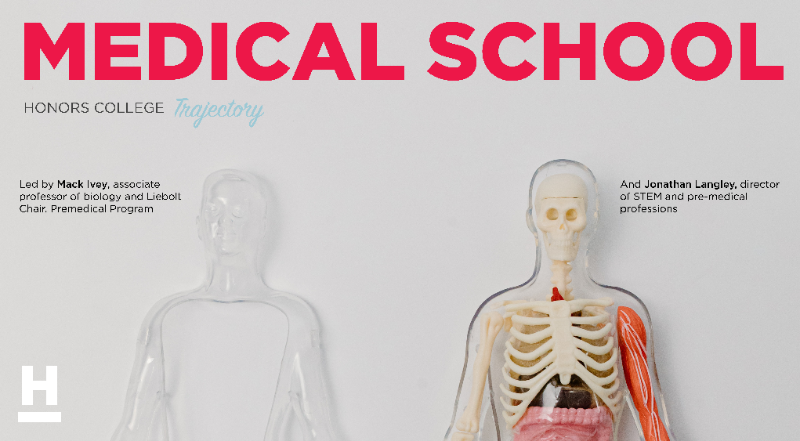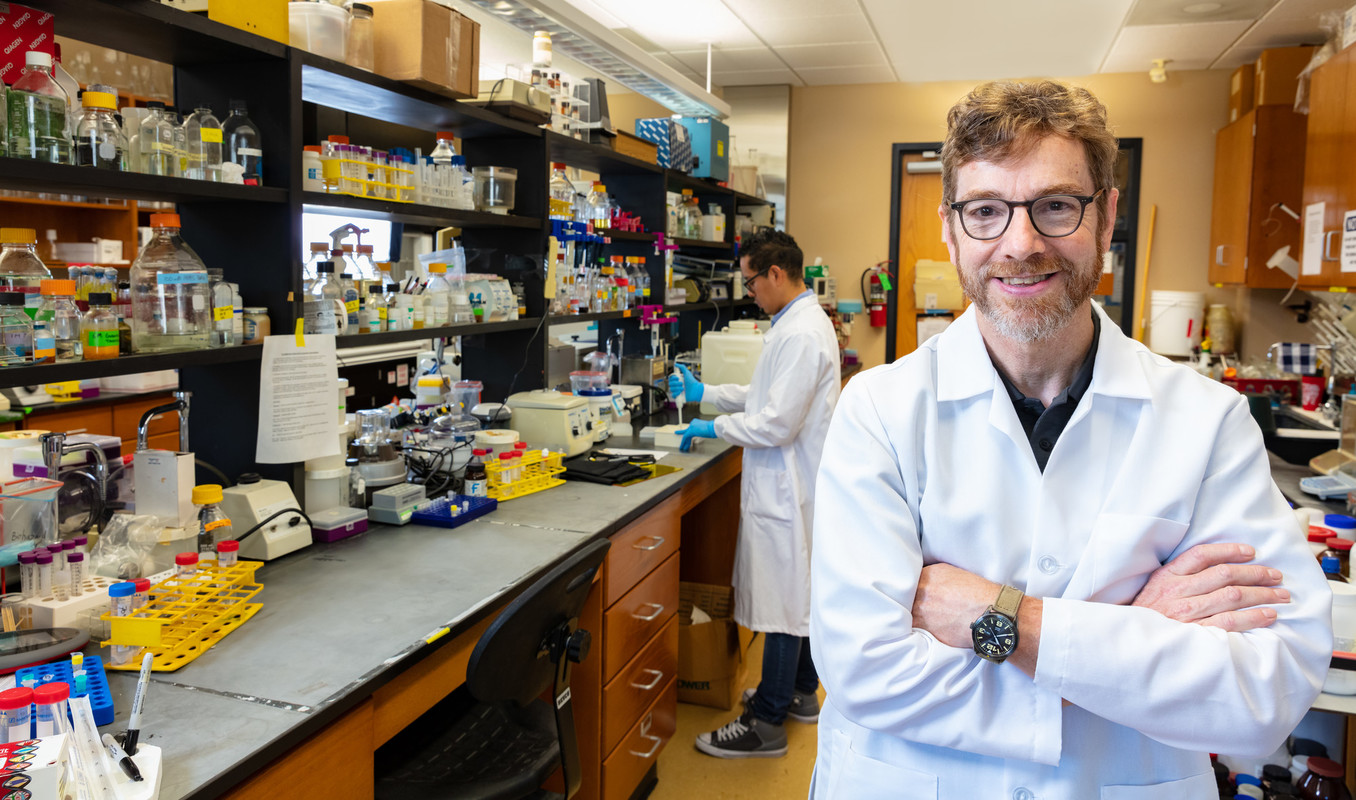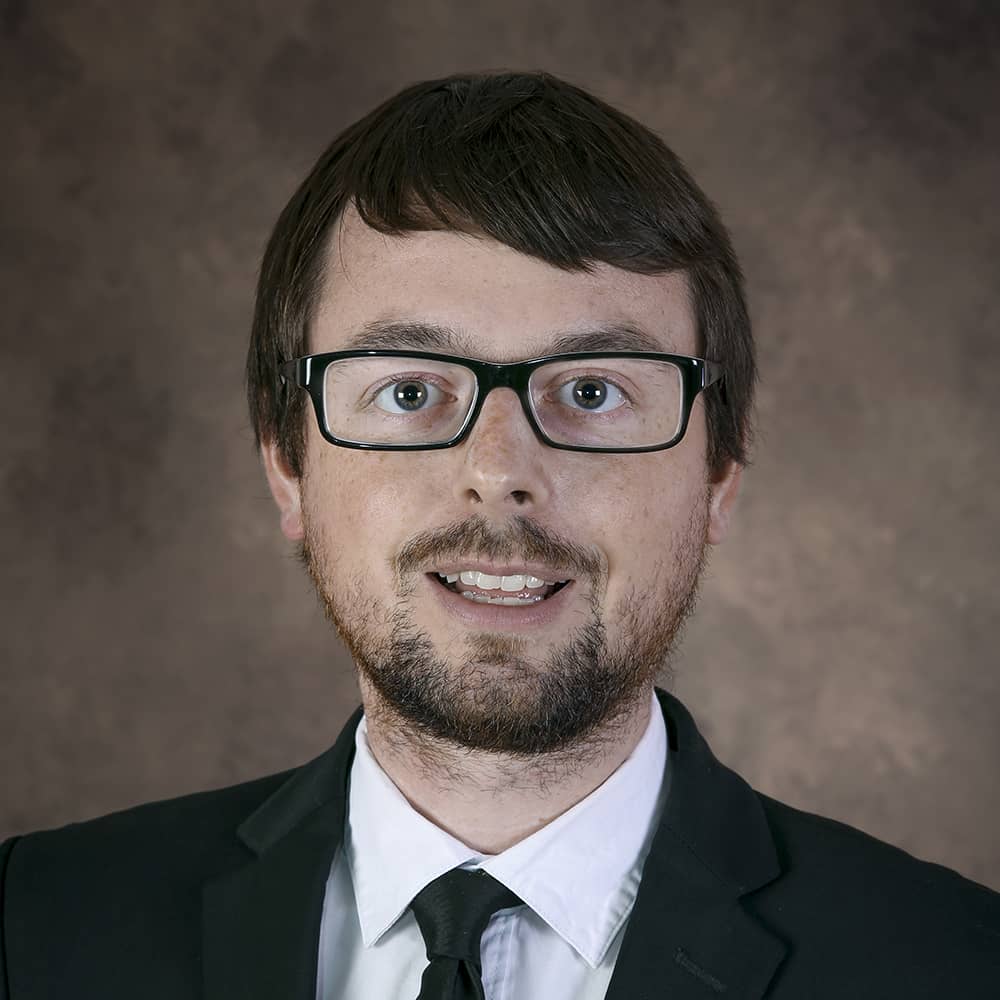Med School

Medical School
HNRS 3801H-001
Mack Ivey and Jonathan Langley
Spring 2025
Th 3:45 - 5:00 p.m.
GEAR 258
Course Application due Oct. 10, 2024 at 11:59 p.m.
Apply for Honors College Courses
The "doctor as healer" and the “genius doctor” are two common personae in the American psyche based upon popularized depictions of physicians and surgeons
in media. And these prolific dramatizations often feed cultural and personal myths
about what the life of a doctor can and will be. This Honors College Forum requires
students to think critically about such popular depictions, as a way to enter conversations
that help parse out fantasy from reality. Such critical analysis will become the starting
point for students to engage in self-reflection as they begin composing authentic
responses to the BIG THREE QUESTIONS med school admission committees want to know:
- Why do you want to be a doctor?
- What qualifications do you have to demonstrate your fitness for becoming a doctor?
- What medically-related experiences have you had since deciding to become a doctor?
In addition to working through how to answer these critical questions, we will use this forum to help med school applicants develop a deeper awareness of some of the most important issues facing medical doctors these days, such as the opioid crisis, the relationship between the American Medical Association and the U.S. government, the increasing elderly population, and the rise of corporate healthcare.
Seminar objectives will be divided into three components:
- Discovering authentic ways to address the big three questions med school admission committees want to know, through analysis of depictions of doctors in popular media.
- Developing an understanding of the most prominent public health issues in contemporary culture that shape the daily practice of medicine and the outcomes of the patients that doctors treat.
- Working with peers in a workshop format to review and revise the medical school application, including, most importantly, the personal comment essay.
About Mack Ivey and Jonathan Langley:
 Currently the Liebolt Chair of Premedical Sciences, Dr. Mack Ivey is a leading faculty participant in helping U of A undergraduates on the premed track
navigate the process of becoming a competitive med school applicant, from working
as a mentor to help students select premed “core” and “supporting” course work to
discovering opportunities for professional development as part of building a competitive
premed portfolio/AMCAS application, and from guiding student leaders of the Alpha
Epsilon Delta undergraduate honors RSO for premed students as a faculty mentor to
organizing faculty, staff and deans who comprise the Premedical Advisory Committee
at the University of Arkansas.
Currently the Liebolt Chair of Premedical Sciences, Dr. Mack Ivey is a leading faculty participant in helping U of A undergraduates on the premed track
navigate the process of becoming a competitive med school applicant, from working
as a mentor to help students select premed “core” and “supporting” course work to
discovering opportunities for professional development as part of building a competitive
premed portfolio/AMCAS application, and from guiding student leaders of the Alpha
Epsilon Delta undergraduate honors RSO for premed students as a faculty mentor to
organizing faculty, staff and deans who comprise the Premedical Advisory Committee
at the University of Arkansas.
Ivey earned his Ph.D. in biochemistry from the University of Georgia in 1987. After a post-doc fellowship at Mount Sinai School of Medicine in New York, he joined the faculty of the University of Arkansas Department of Biological Sciences in 1992. His research projects include studies of the disease-causing processes of C. difficile and NASA-funded studies related to Mars and planetary protection. He is a member of the Fulbright College Honors Council, served as associate chair for the U of A Department of Biological Sciences, and was honored with a Distinguished Faculty Award by the U of A Honors College in 2015. One year prior, Ivey “emerged victorious” in the inaugural Life Raft Debate sponsored by U of A Housing and Fulbright College of Arts & Sciences.

Jonathan Langley is the Honors College Futures Hub's director of STEM and Pre-Medical Professions, helping honors students in these fields explore research, study abroad and internship opportunities during their time on campus and prepare for graduate or professional school.
Langley brings extensive experience to his role. Prior to joining the Honors College staff he worked for eight years in the UA's Office of Nationally Competitive Awards, where he helped ambitious students pursue funding for tuition, study abroad, graduate school and research opportunities. He coordinated the application process for the Student Undergraduate Fellowship (SURF) and supported students applying for STEM-focused awards, such as the Goldwater Scholarship, NSF Graduate Research Fellowship, and NSF Research Experiences for Undergraduates. In all of these processes, he helped STEM students think not only about immediate success for funding, but also about their long-term trajectory and the ways in which undergraduate opportunities can culminate in success at the post- graduate level.
Langley also served as an academic advisor in the Fulbright College of Arts and Sciences, where he learned the specific coursework and long-term planning required of students wishing to enter medical school. Before working at the U of A, Langley was an English language instructor at Université du Maine (now Le Mans Université) in Le Mans, France, for the 2011-2012 academic year. Langley earned a Master of Arts in French Studies and a Bachelor of Arts in English and French, cum laude, at the U of A.